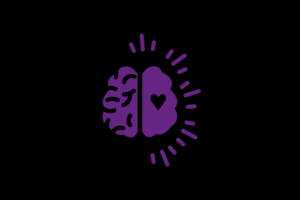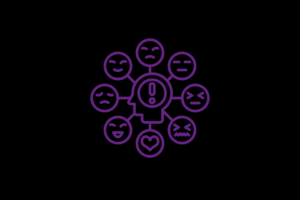You’ve probably heard of Premenstrual Syndrome (PMS), but have you ever heard of PMDD?
(If you haven’t heard of PMS we recommend reading this book)
Premenstrual Dysphoric Disorder (PMDD) is often described as a severe negative reaction in the brain to natural changes in hormone levels in people who menstruate (have periods).
While many people may experience PMS before their period, PMDD is less common. People with PMDD have symptoms that are much worse and they can be really difficult to manage. You might argue more with your friends and family, have more meltdowns and struggle to concentrate on school work or hobbies.
PMDD can affect people of any neurotype, but it appears to be more common in those who are autistic or ADHD. The reason for this has not been widely studied yet, but it could be because of differing levels of interoception (being aware of changes happening inside your body) amongst neurodivergent people, or because some hormone changes can have a negative impact on executive functioning and these things can increase feelings of overstimulation and overwhelm. Another theory is that it could be related to trauma.
If you have PMDD you will find that symptoms usually happen in the 7-10 days before your period starts. It can really suck, but symptoms usually improve as soon as you start your period each month. Some people only have a few things on the list happen, but other people might get more.
Symptoms
- Struggling more with emotions like feeling very angry or crying more easily
- Increased sensory sensitivity
- Increased RSD (Rejection sensitive dysphoria)
- Increased anxiety
- Feeling hopeless and depressed
- Finding it more difficult than usual to concentrate and focus
- Feeling more overwhelmed
- Having more meltdowns and/or shutdowns
- Feeling exhausted
- Feeling less interested in things you usually find fun
- More impulsive (doing things without thinking them through)
- Increased intrusive thoughts
- Increased thoughts about self-harm and suicide
- Increased physical pain such as painful joints and breasts, cramps and headaches
- Changes in sleep – so sleeping more than usual, or finding it more difficult to get to sleep
- Changes in how you eat, such as craving certain foods or binge eating
What Can Help
Track your cycle using an app – If your periods are regular, this can be a really good way to predict when you are going to be struggling, so you can plan ahead and let others know that you might need extra support.
Reduce demands – If possible plan things so you have less scheduled events and demands when you’re likely to be struggling.
Contraceptives – Speak to your GP – If you are considering using hormonal contraceptives, you should discuss your PMDD symptoms with a doctor. Everybody responds differently, but sometimes hormonal contraceptives can make symptoms worse. Your GP will be able to discuss options with you, but it might be a good idea to ask about non-hormonal contraceptives, or keep a mood diary if trying new contraceptives to help you notice if they make you feel better or worse.
Be kind to yourself – it sounds cheesy but it can help to remember that feeling like this is not your fault. You are not ‘being dramatic’. It can be really hard to deal with and it’s okay if you need to rest and say ‘no’ to things.
Safety plan – if one of your symptoms is increased thoughts of self-harm and suicide, make sure that other people are aware of this and you know where to go for support. If you struggle to reach out when you feel overwhelmed it can help to know that other people have already agreed to help and are part of your plan.



